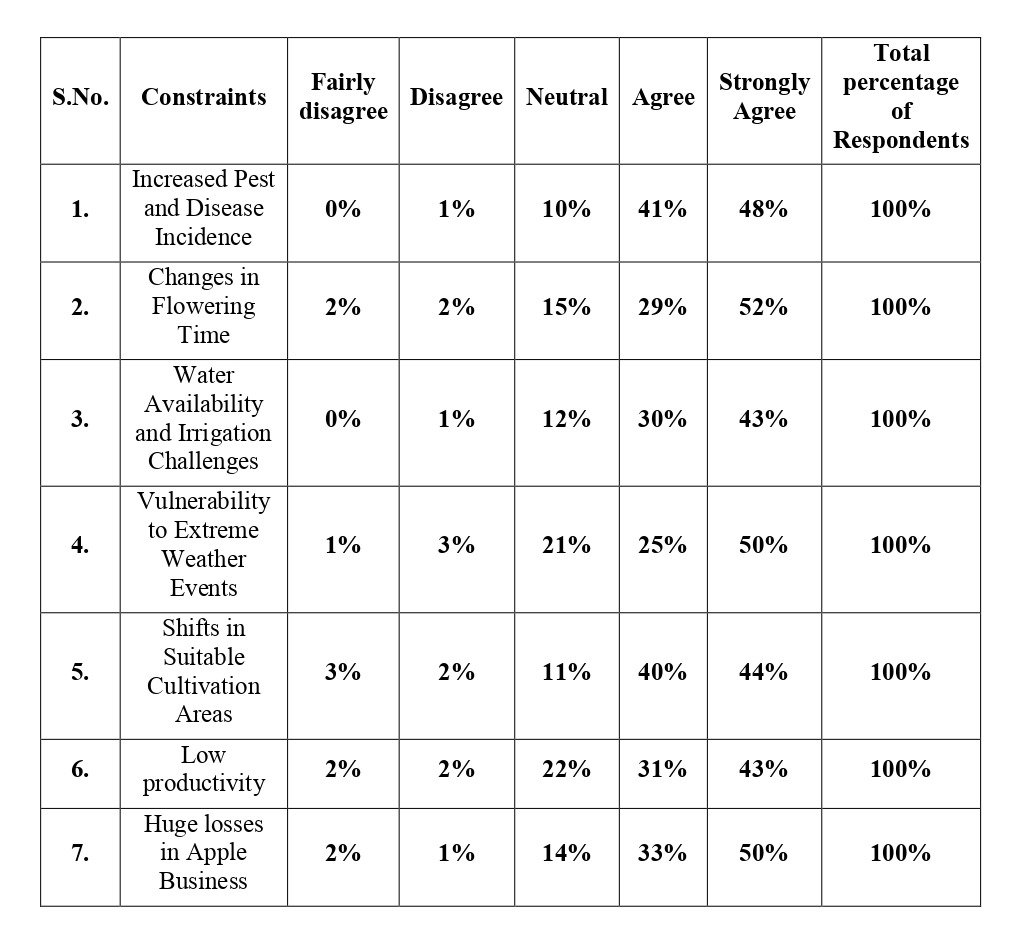Effects of Climate Change on Apple Farming in Kashmir Valley
Keywords:
Climate Change, Apple Farming, Low Productivity and Unexpected Hail Fall.Abstract
The effects of climate change on apple farming in the Kashmir valley are becoming increasingly significant. The region's erratic weather patterns, including unpredictable temperature fluctuations, changes in precipitation, and extreme weather events, have a profound impact on apple cultivation. Rising temperatures contribute to increased pest and disease incidence, affecting the health and productivity of apple orchards. Changes in flowering time disrupt pollination and fruit development, leading to potential yield losses. Additionally, water availability and irrigation challenges pose significant risks to apple farming, as reduced snowfall and changing precipitation patterns affect water supply and irrigation practices. The vulnerability of apple orchards to extreme events, such as heavy rains, hailstorms, and unseasonal snowfall, results in physical damage and disrupts transportation and market access. The suitability of certain cultivation areas may shift due to climate change, requiring farmers to adapt their practices and explore new varieties or crop diversification. Mitigation and adaptation strategies, such as climate-resilient farming practices and supportive policies, are necessary to safeguard the sustainability and productivity of apple farming in the Kashmir valley in the face of climate change.
Downloads

Published
How to Cite
Issue
Section
Copyright (c) 2023 Authors

This work is licensed under a Creative Commons Attribution-NonCommercial 4.0 International License.




